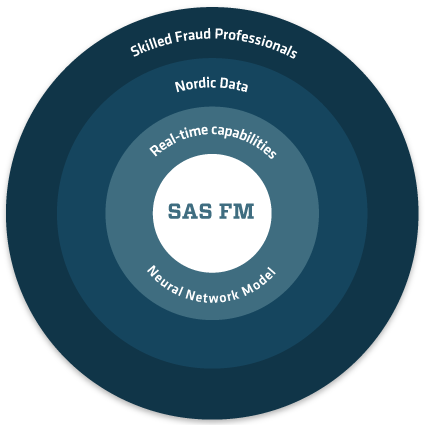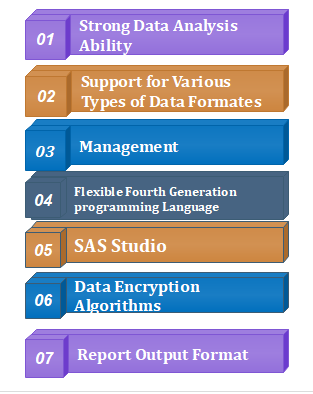Description
Introduction of SAS 2 for Data Management
SAS stored processes allow you to encapsulate your SAS code and make it reusable for various applications, such as reporting, analytical processes, or data transformations. Stored Processes Using SAS 2 takes your stored process skills to the next level, focusing on advanced topics such as creating parameterized stored processes, integrating stored processes into web applications, and managing performance.
This course will help you leverage stored processes for large-scale, automated tasks and integrate them into your organization’s workflows, improving efficiency and consistency across SAS programming tasks.
Prerequisites
- Knowledge of basic SAS programming and procedures.
- Familiarity with the concepts of SAS Stored Processes.
- Experience working with the SAS environment, including SAS Management Console and SAS Enterprise Guide.
Table of Contents
- Introduction to Advanced Stored Processes
1.1 Overview of SAS Stored Processes
1.2 Benefits of Using Stored Processes in Large-Scale Systems
1.3 Architecture and Components of Stored Processes
1.4 Tools and Interfaces for Creating Stored Processes - Creating Parameterized Stored Processes
2.1 Introduction to Parameters in Stored Processes
2.2 Creating and Managing Input Parameters
2.3 Handling Output Parameters and Results
2.4 Using Dynamic and Optional Parameters in Stored Processes - Debugging and Testing Stored Processes
3.1 Common Errors and Troubleshooting Techniques
3.2 Debugging Stored Process Code in SAS Enterprise Guide
3.3 Logging and Monitoring Stored Process Execution
3.4 Automating Testing for Stored Processes - Optimizing Stored Processes
4.1 Techniques for Improving Stored Process Performance
4.2 Using SAS Caching Mechanisms(Ref: Advanced SAS Programmer Learning & Certification)
4.3 Efficient Data Handling and Memory Management
4.4 Troubleshooting Performance Issues - Integrating Stored Processes with Web Applications
5.1 Introduction to the SAS Web Application Environment
5.2 Using Stored Processes in Web-Based Reporting and Dashboards
5.3 Calling Stored Processes via HTML, JavaScript, and URL Queries
5.4 Authentication and Authorization for Web Integration - Security Considerations for Stored Processes
6.1 Securing Stored Process Access and Execution
6.2 Implementing Role-Based Access Control
6.3 Best Practices for Securing Sensitive Data in Stored Processes
6.4 Auditing and Logging Stored Process Activities - Working with Stored Processes in SAS BI Dashboard
7.1 Integrating Stored Processes into SAS BI Dashboard
7.2 Creating Interactive Dashboards Using Stored Processes
7.3 Linking Parameters to Dashboard Filters
7.4 Using Stored Processes for Custom Calculations and Data Refresh - Advanced Stored Process Techniques
8.1 Scheduling and Automating Stored Processes with SAS Management Console
8.2 Managing Multiple Stored Processes Across Different Projects
8.3 Using Stored Processes with SAS OLAP Cubes
8.4 Handling Complex Business Logic with Stored Processes - Best Practices for Storing and Versioning SAS Code
9.1 Creating a Repository for SAS Stored Processes
9.2 Version Control and Documentation of Stored Processes
9.3 Maintaining and Updating Stored Process Code
9.4 Collaboration Techniques for Multi-Developer Environments - Real-World Applications and Case Studies
10.1 Case Study: Automating Report Generation with Stored Processes
10.2 Case Study: Integrating SAS Stored Processes into Enterprise Workflows
10.3 Building a Scalable Data Processing Pipeline with Stored Processes
10.4 Industry Applications in Healthcare, Finance, and Retail
Conclusion
In Stored Processes Using SAS 2, you’ll deepen your expertise in building, debugging, optimizing, and integrating stored processes into real-world applications. This advanced course equips you with the skills necessary to handle complex stored process tasks, ensuring that your SAS solutions are both scalable and efficient.
By the end of the course, you’ll be able to design and implement sophisticated stored processes, integrate them with web applications, and optimize them for large-scale environments. You’ll also be well-prepared to tackle the challenges of working with stored processes in a team setting, ensuring smooth and secure operation across various enterprise applications.










Reviews
There are no reviews yet.